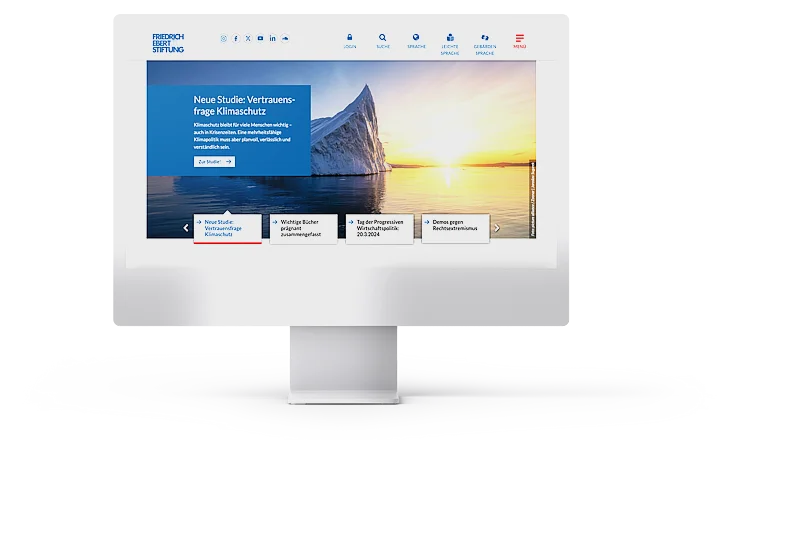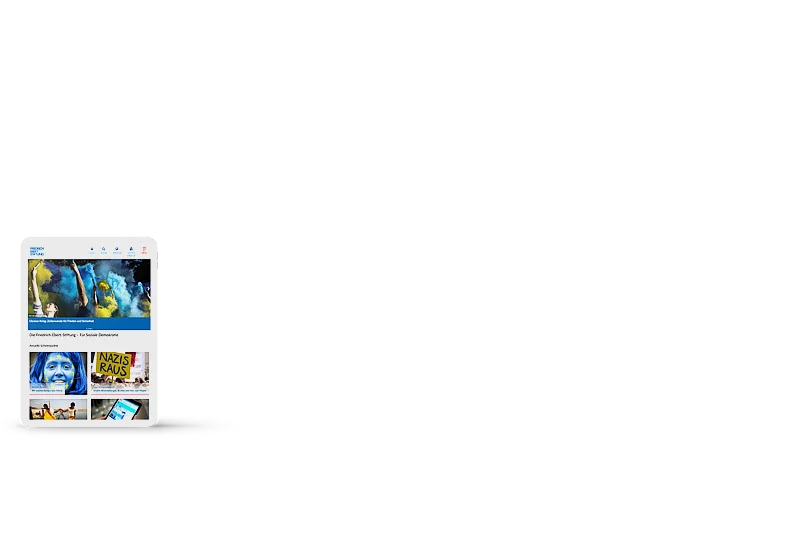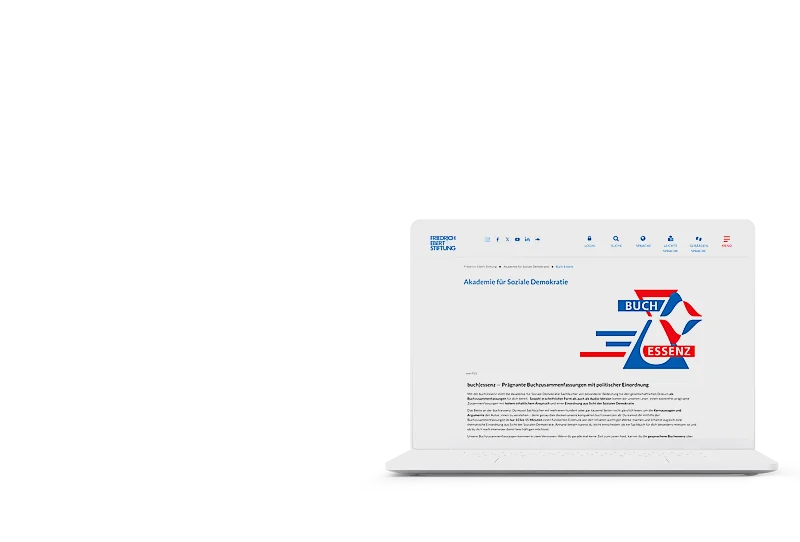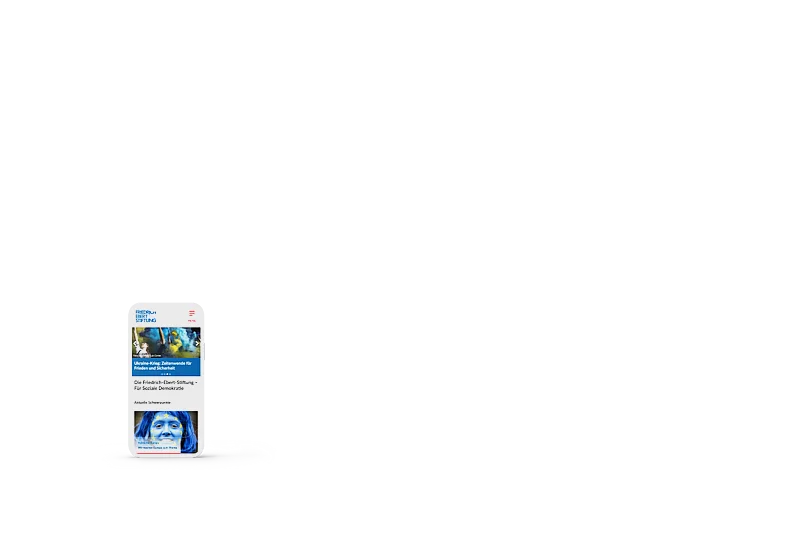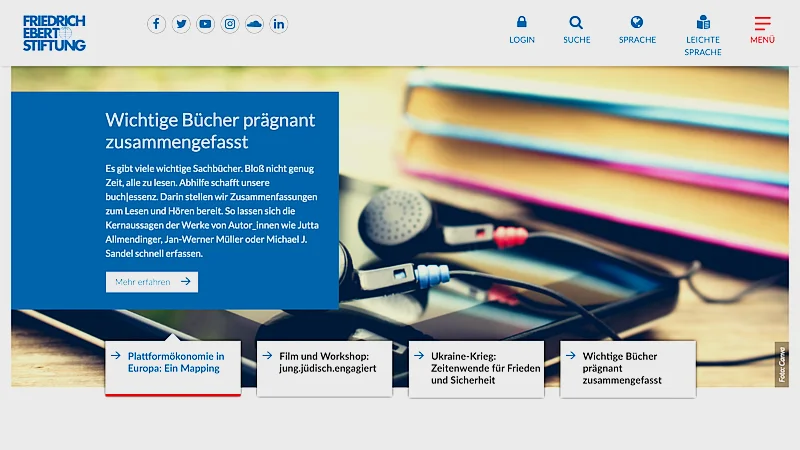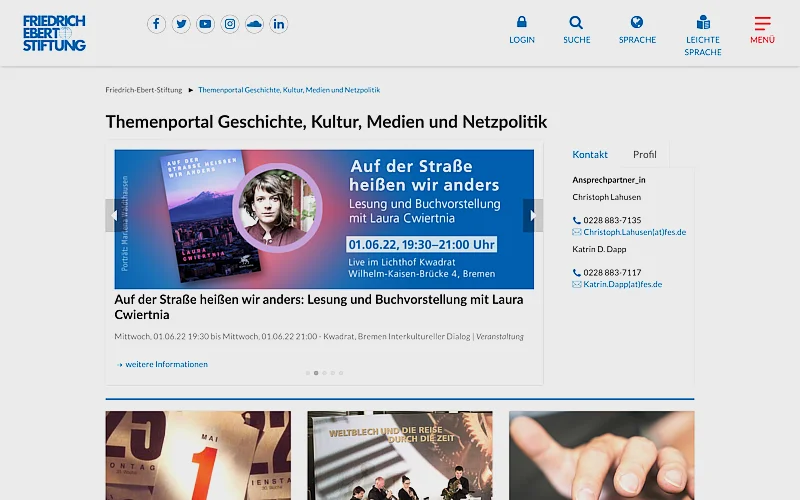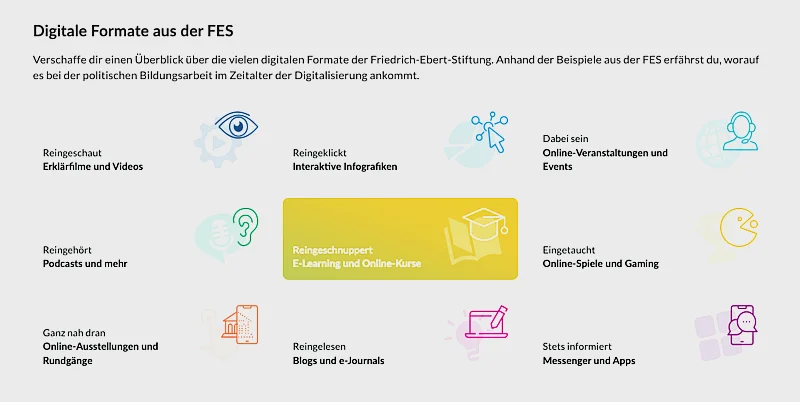Further development and support for the TYPO3 website of the Friedrich-Ebert-Foundation
In autumn 2018, FGTCLB, under the leadership of web-vision, was able to assert itself against other agencies in the tendering process and has already successfully received the Community Portal< /a>of the Friedrich-Ebert-Foundation based on TYPO3 CMS. Now there is another project - the technical overhaul of the official website of the Friedrich-Ebert-Foundation- on.
In the course of the project, it was necessary to optimize the existing installation, minimize dependencies on third-party systems and develop new features to improve usability. In the following sections, we present the specific aspects that we have implemented.
General information about the fes.de project
The TYPO3 instance of the Friedrich-Ebert-Stiftung is home to around 500 editors in more than 200 user groups with a wide variety of dedicated access and usage rights. Consistent user management is therefore always a top priority in all activities related to the project.
In terms of content, the project is a support and maintenance project with an additional, large proportion of new and further developments. The existing website is therefore not only continuously maintained, but also regularly expanded with new functionalities.
The task packages for support and maintenance of the installation are organized according to Kanban principles, while the development of new features is carried out as a Scrum project with topic-based sprints. This allows us to promptly fix bugs and inconveniences during ongoing operations, as well as to add new features to the installation in regular cycles.
Reduce the use of dependencies on third-party extensions
As already described at the beginning, one focus of the project was to reduce the dependency on third-party extensions and thus to streamline the installation from a (maintenance) point of view, among other things. Many functionalities that had to be implemented by TYPO3 extensions a few years ago, for example, have now migrated to the TYPO3 Core, making the extensions obsolete. Or the requirements for the website and its features have changed in recent years, so that some extensions - and associated functionalities - are simply no longer needed and can be removed. We will give some more concrete examples of this in the following sections.
Basically, the less extensions are in use in an installation, the more comfortable the maintenance and further development of the TYPO3 instance will be. Likewise, future TYPO3 upgrades will be easier and less expensive.
Migration from grid elements to containers
For structuring and designing the content elements in the frontend and backend, fes.de - like many other websites - used the TYPO3 extension gridelements. However, due to a lack of funding, this extension is currently no longer being further developed and can therefore no longer be used for TYPO3 installations from version 10 onwards. At the same time, the extension t3ddy had to be replaced, because it is also no longer developed for current TYPO3 versions. Accordingly, a new, future-proof alternative with the same or similar functionalities was needed. At this point we decided to use the extension container.
The migration of all grid elements to container elements was carried out successfully during ongoing operations - and without downtimes.
Migration from Powermail to Form
Another part of the technical overhaul of the website was the migration of the forms from Powermail to the Core Extension Form. Here, too, the task was to replace obsolete components of the installation provided by third parties with new functionalities supported by the TYPO3 Core. Editors can easily create and manage forms in the backend or select and customize provided form templates.
New developments for the fes.de
In the course of the project, a number of new features were also implemented and existing functionalities were extended:
- Implementation of a DSGVO-compliant cookie bar,
- Extension of the learning maps extension,
- Development of a big blue button extension for the new event portal,
- Translation of existing content using the wv_DeepL extension developed by web-vision.
At the moment we are working on the development of the new event portal for the Friedrich-Ebert-Stiftung, as well as on several new digital pages. Both subprojects will be launched in 2022 - stay tuned!
Friedrich Ebert Stiftung
The FES is Germany's oldest political foundation. It is named after Friedrich Ebert, the first democratically elected president of the German Reich. As a party-affiliated foundation, its work is guided by the fundamental values of social democracy: freedom, justice and solidarity. Around 670 employees work at the headquarters in Bonn and Berlin, in 15 state and regional offices across Germany, and in more than 100 foreign representatives.


